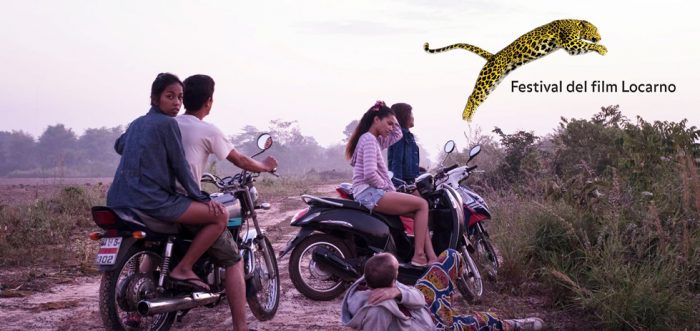Festival Director Carlo Chatrian opened his program address with a clear statement of intention: “I dedicate this year’s Festival to Abbas Kiarostami and Michael Cimino. Not just in gratitude for the emotions they gave to us, but also because both filmmakers are representative of the kind of cinema for which Locarno is home from home.” For the 2016 iteration of the much-loved Festival del film Locarno, Chatrian and co have put together a programme that is dense, intricate, and wide-reaching; one that lives up to the stated intention of the festival’s director. With Locarno’s lineup defined by an lengthy array of international premieres, particularly in its competition, the festival has frequently debuted films heavily praised by our staff.
2016 marks the first year that we at 4:3 will be providing review and interview coverage of the Locarno Film Festival.
Concorso internazionale
The Concorso Internazionale, the centrepiece of the festival for cinephiles, is one of the boldest statements from the festival in recent years. With its stated intention to “cross and blur boundaries” and present “a stimulating panorama of contemporary auteur cinema, where young talent rubs shoulders with that of established directors”, Locarno’s competition has eschewed some of the bigger names of recent years for an intricate and varied selection, which is likely to define a steady portion of what films end up travelling through the festival circuit in the months that follow.1
With his previous film, Saudade, Katsuya Tomita established himself as an outsider director within Japan’s cinematic landscape; offering a political film set in Kofu, Yamanashi about social decay, migration, and tensions within the country. Several years in the making, Tomita’s latest work shifts away from Kofu, focusing instead on sex work in Bangkok. As one of Japan’s most original working directors, Tomita’s ambitious 3-hour Bangkok Nites is a clear highlight of the selection. From the same country comes Akihito Shiota’s significantly shorter work, Kaze ni Nureta Onna, clocking in at 77 minutes. Considering the careers of both directors, characterised by their incongruity with trends in broader Japanese cinema and the often confrontational nature of their films, both films are likely to challenge audiences perceptions of the current landscape of Japanese film—highlighting the role Tomita and Shiota have had in broadening it.
Anocha Suwichakornpong established herself as one of Thailand’s most exciting filmmakers with 2009’s Mundane History, which offered a subtle look at class divides and social hierarchies in Thailand’s Isaan province, whilst making cutting insights into the nature of human relationships. Dao Khanong (English: By The Time It Gets Dark) is a long-awaited follow-up centred around an ensemble cast and a characteristically layered narrative. Yousry Nasrallah, whose previous work After the Battle looked at the 2011 political that changed the face of Egypt and screened in competition for the Palme d’Or at Cannes in 2012, returns with Al Ma’wal Khodra wal Wajh El Hassan.
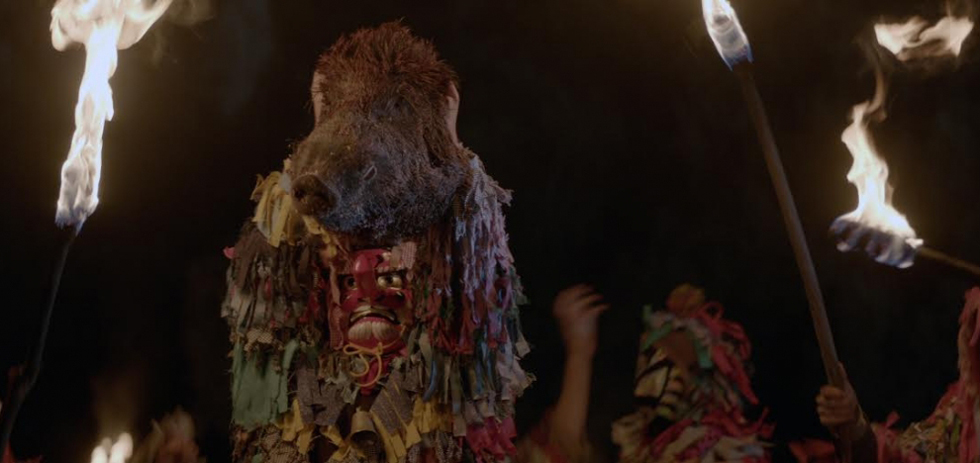
Out of the three Portuguese films in the selection, João Pedro Rodrigues’ is likely to be the more familiar, as one of the country’s most well-known arthouse directors. His latest work screening at Locarno, O Ornitólogo, places a 40-year-old ornithologist at the centre of a loose adaptation of the religious tale of Saint Anthony; imbued with personal reflections on age, sexuality, and existence—Rodrigues’ film looks to continue the directors distinctly inventive and imaginative approach to filmmaking. Julien Samani’s Jeunesse gives voice to a younger generation of filmmakers in the country, with a coming-of-age story on board a cargo ship manned by a group of down-and-out characters. On the back of 2011’s A Woman’s Revenge, Rita Azevedo Gomes’ returns with Correspondências.
Another work in the selection focused on manifestations of morality, Michael Koch’s Mirija. With the titular Maria, Koch seeks to highlight the emotional and moralistic complexities that punctuate the difficult move from Ukraine to Germany. Just over 30 years since she released her debut in The Death of the White Stallion, Koch’s fellow German director Angela Schanelec features in the competition with her latest film, Der Traumhafte Weg.
With a notable background as a critic for La Lettre du Cinéma, the Parisian film journal, Axelle Ropert’s shift into film writing and directing has been marked by a gentle sense of humanism, establishing herself as a storyteller interested in intimate reflections on ordinary lives. One of the eight films in this year’s Concorso selection directed by women, La Prunelle de mes yeux follows the snowballing lie from a boy to a blind girl that he is also blind.
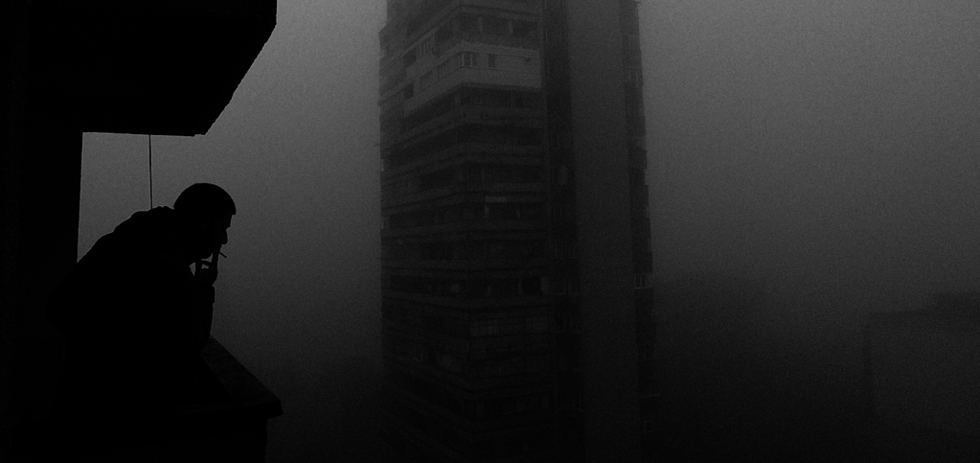
The Bulgarian presence is twofold in this years Concorso, with both Ralitza Petrova’s Godless and Kristina Grozeva and Petar Valchanov’s Slava. Petrova’s film looks at “the moral downfall of a nurse living in a poor Bulgarian town.” Working with non-professional actors from the area it seeks to depict, Petrova commented that she wanted “to explore the frail intimacy between brutality and empathy, through the moral dilemmas of a generation raised with a lost belief in goodness.” Set in a small town in the same country, Grozeva and Valchanov’s work looks to offer a lighter reflection on morality in Bulgaria through a tale of a teacher trying to mediate between delinquency in her class and economic stresses in her own life. Across the border, the Romanian director Radu Jude – best known for his critically lauded Aferim! – delivers a loose adaptation of Max Blecher’s autobiography in Inimi cicatrizate (English: Scarred Hearts), set in a sanatorium on the coast of the Black Sea. Referred to as the Romanian Kafka, Max Blecher’s short life has had a clear national legacy, however, on the back of the strength of Aferim! – Jude’s unique approach to this story is much anticipated.
While there’s an extensive array of heavier dramas in this years lineup, Matías Piñeiro’s oeuvre is more in line with comedy. With Hermia & Helena, Locarno receives the director’s English language debut, filmed between Montana and New York. As one of Argentina’s most prolific figures working today, Piñeiro working within a markedly different environment will serve as an indicator of his malleability as an artist. Back in Piñeiro’s country of origin, Milagros Mumenthaler’s La idea de un lago looks at the interplay between memory, the past and identity – under the backdrop of the aftershock left in the wake of the military dictatorship in Argentina.
Following up 2009’s La Pivellina, Tizza Covi and Rainer Frimmel are bringing to Switzerland Mister Universo – a film about a young lion tamer named Tairo, unsatisfied with his life, travelling through Italy looking for a man who presented him with a talisman that he misplaces near the commencement of the film. With the shared background in photography from both directors, and the crisp cinematography of their previous work, Mister Universo’s visuals are expected to impress. Rounding off the Concorso is the debut feature work from Polish director Jan P. Matuszyński, best known for his documentary Deep Love. His latest film is Ostatnia Rodzina, which examines the relationship shared by late Zdzisław Beksiński and his son Tomasz Beksiński – a lauded painter and music journalist respectively.
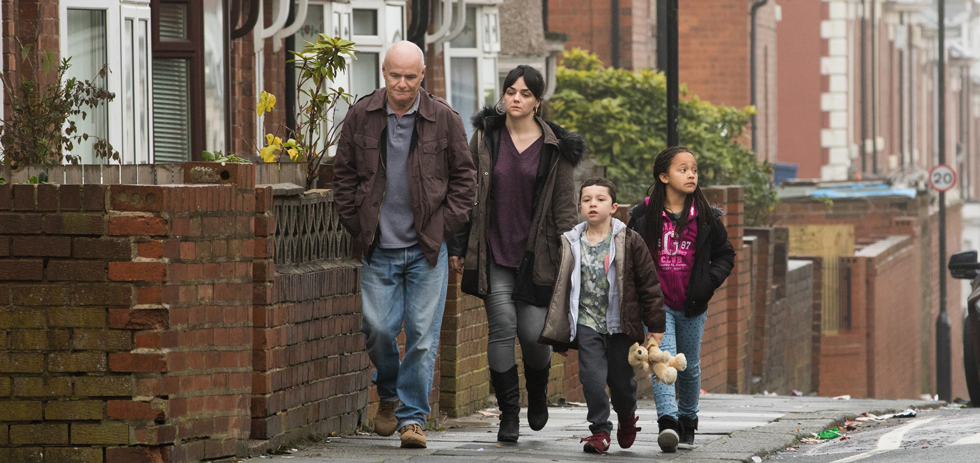
Piazza Grande
Where the Concorso is focused on a loose conception of auteurism, the Piazza Grande is concerned with spectacle; the largest screen, 8,000 viewers per night, the biggest audience awards, and the Variety award chosen by a panel of film critics. This year, the section is programmed in much the same way, oscillating between some of the biggest names of the festival, as well as films that suit the selection, albeit less prominent filmmakers
From festival guest Alejandro Jodorowsky’s latest film, Poesía sin fin and Ken Loach’s I, Daniel Blake – which took out the Palme d’Or at this years Cannes – to Paul Greengrass’ latest iteration of the titular character in Jason Bourne, this years Piazza Grande offers a clear mix with arthouse flicks placed alongside bigger productions. Also of note is Directors’ Fortnight alumni Seong-hun Kim, returning from the Cannes-hit of A Hard Night with his latest film, Teo-Neol.
Beyond this, the selection features Maria Schrader’s Stefan Zweig in Amerika, Christophe Van Rompaey’s Vincent, Colm McCarthy’s The Girl With All The Gifts, Christian Schwochow’s Paula, Fréderic Mermoud’s Moka, Ashutosh Gowariker’s Mohenjo Daro, Marie-Castille Mention-Schaar’s Le Ciel attenda, Dain Iskandar Said’s Interchange, Gilles Marchand’s Dans la forêt, and Licinio Acevedo’s Comboio de Sal e Açucar.
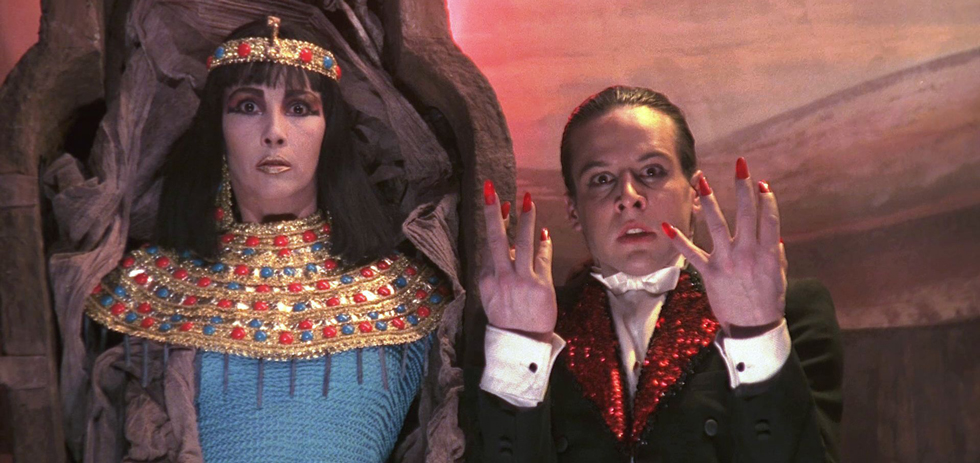
Histoire(s) du cinéma
Described as “film history presented by its protagonists”, Locarno’s Godard-referencing Histoire(s) selection offers what is arguably the widest range of filmmakers and movements, with a variety of criteria – from tributes, celebrations, and anniversaries. Aforementioned guest, Jodorowsky will have 3 works – The Dance of Reality, The Holy Mountain, Santa Sangre – screened under the Pardo d’onore Swisscom banner. There is a focus on Bill Pullman featuring two of the actor’s performances – David Lynch’s Lost Highway and Jake Kasdan’s Zero Effect – and the Vision Award Nescens will look at composer Howard Shore’s work in Tim Burton’s Ed Wood, Martin Scorsese’s Hugo, Jonathan Demme’s The Silence of the Lambs, and David Cronenberg’s Videodrome.
In the tributes portion of the selection, David Linde will be remembered with screenings of Ang Lee’s Crouching Tiger, Hidden Dragon and Alfonso Cuarón’s Y Tu Mamá También, while the tribute to Abbas Kiarostami will feature a tribute of shorts – titled “Filmando En Cuba Con Abbas Kiarostami” – from Ramiro Pedraza, Martin Snyder, Fatema Abdoolcarim, Kai Tillman, Pablo Briones, Allessandro Focareta, and Pedro Freire – as well as the late Iranian director’s own Where is the Friends House? and Pasajera.
Living tributes selections will also occur for the careers of Jane Birkin, Mario Adorf, Jonas Mekas, Clemens Klopfenstein, and Jean-Louis Roy, with a special programming of Kumashiro Tatsumi’s 1973 film, Koibito-Tachi Wa Nureta topping off the intricately curated section of the festival. At the same time, Histoire(s) isn’t without its newer releases, with the Dominik Graf documentary on Germany genre films Verfluchte Liebe deutscher Film and Louise Osmand’s survey of Ken Loch in Versus alongside similar new works from Claudia Priscilla, Pedro Marques, Eugenio Puppo, and Ricardo Carioba.
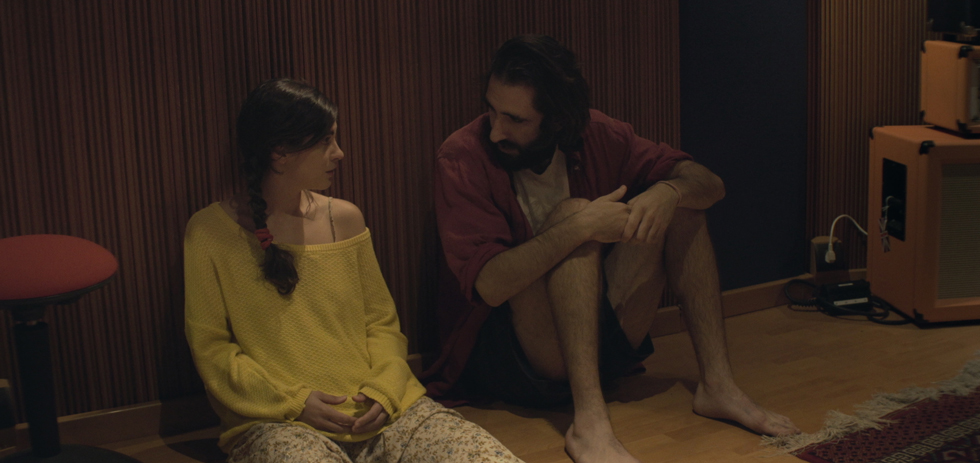
Concorso Cineasti del presente
One of Greece’s up-and-coming filmmakers, director Stergios Paschos (Elvis is Dead) will screen his first feature film, Afterlov, in the Concorso Cineasti del presente section. While Mohammed Hammad’s Akhdar Yabes marks a strong Egyptian presence at the festival alongside Yousry Nasrallah’s entry in the Concorso internazionale. Prolific Japanese director Testsuya Mariko – who’s been behind Float Running, Mariko’s 30 Pirates, Ninifuni, and Yellow Ki in recent years – will have his most recent effort, Destruction Babies, shown. The film, which follows a group of young people who steal a car and leave town, is supposedly a showcase of extreme violence.
With its focus on “emerging directors from all over the world”, the Concorso Cineasti del presente delivers a globe-trotting selection. From Germany’s Douglas Gordon with I Had Nowhere To Go, Indonesian director Yosep Anggi Noen’s Istirahatlah Kata-Kata, Colombia’s Lina Rodríguez’ Mañana a esta hora, Italian Yuri Ancarani’s The Challenge, to Kiro Russo’s Viejo Calavera from Bolivia.
Kris Avedisian’s Donald Cried is set to represent America in the Cineasti program, with a story of a favour for an old friend spiralling into a journey into past and identity. Continuing the strong presence from Argentina at the festival in recent years are Eduardo Williams’ El age del humano and Nele Wohlatz’ El futuro perfecto. Both France and Switzerland have similarly strong showings in the selection. From the former, Maud Alpi’s Gorge Cœur Ventre and Caroline Deruas’ L’Indomptée, while the latter has Michele Pennetta and Klaudia Reynicke screening Pescatori di crop and Il Nido respectively.
Other sections
The smaller sections of the festival will be given a new program in Signs of Life, which the festival states will seek to explore “cinema at the frontiers, with new narrative forms and formal innovations. Alongside this is the already-announced Open Doors, which will make-up part of a three year focus on eight countries in South Asia: Afghanistan, Bangladesh, Bhutan, Maldives, Myanmar, Nepal, Pakistan and Sri Lanka.
With shorts from Los Angeles Plays Itself director Thom Andersen as well as Chinese heavyweight Jia Zhangke kicking off the program, the Fuori concorso will screen works out of competition, with features from Nicolas Wadimoff, Maria Mauti, Laura Viezzoli, Luc Bondy, João Botelho, Corinna Belz, Xavier Koller, Jacob Berger, Valeria Bruni Tedeschi, Yann Coridian, and Kaouther Ben Hania. Rounding things off is an enormous Retrospettiva selection, best to be viewed in the programme itself, which offers a lengthy list of films “dedicated to Cinema in the young Federal Republic of Germany from 1949 to 1963.”
